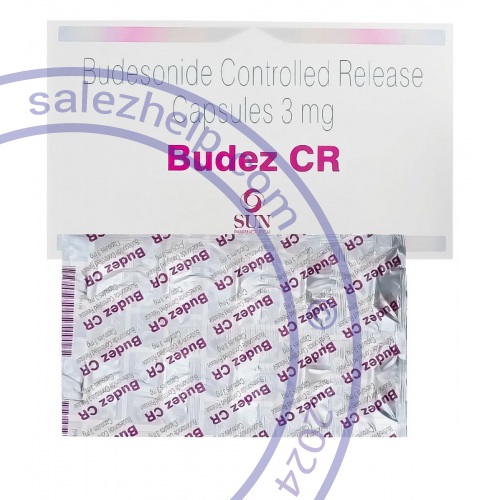Entocort EC Singapore
Entocort EC is a medication primarily prescribed for the treatment of Crohn's disease, a condition that causes inflammation of the digestive tract. Its active ingredient is budesonide, a corticosteroid, which works by decreasing the body's natural immune response, thereby reducing inflammation and associated symptoms. This drug is usually taken orally and its side effects can include nausea, heartburn, or a change in menstrual periods. As with all medications, it should be used under the guidance of a healthcare professional.
- 3mg
1. **What is Entocort EC used for?**
Entocort EC is primarily used for the treatment of Crohn's disease. This is a chronic inflammatory disease of the digestive tract. It helps reduce the symptoms of this disease by reducing inflammation in the intestines.
2. **How does Entocort EC work?**
Entocort EC contains budesonide, a corticosteroid. It works by decreasing the body's natural immune response, leading to reduction in swelling and inflammation in the digestive tract caused by Crohn's disease.
3. **How to take Entocort EC?**
Entocort EC should be taken orally, usually once daily in the morning, or as directed by your doctor. It is advised to swallow the capsules whole without chewing or breaking them.
4. **Who should not take Entocort EC?**
Patients diagnosed with tuberculosis, fungal infections, or certain types of viral or bacterial infections should avoid using Entocort EC. It might not be appropriate for people with certain health conditions, such as osteoporosis, liver disease, and certain eye conditions. Also, anyone with an allergy to budesonide or any component of the formulation should not use this medication.
5. **What are the side effects of Entocort EC?**
Common side effects include headache, nausea, abdominal pain, fatigue, dizziness. More serious side effects might include vision problems, unusual swelling, fatigue, thinning skin, or signs of infection like fever, persistent sore throat.
6. **Can women use Entocort EC during pregnancy?**
Data on the use of Entocort EC during pregnancy is limited. However, since it contains corticosteroid, there may be potential risks. Therefore, it should only be used during pregnancy if benefits outweigh the potential risks. Always consult with your healthcare provider.
7. **Can Entocort EC be used in children?**
The effectiveness and safety of Entocort EC in pediatric patients have not been established. Therefore, the use in children is not recommended unless specifically instructed by the healthcare provider.
8. **Can Entocort EC interact with other medicines?**
Yes, Entocort EC can interact with other medications like certain antibiotics, antifungals, certain HIV medications, and drugs used to treat seizures, among others. Hence, always discuss with your doctor about all medications you are currently taking.
9. **How long does it take for Entocort EC to work?**
The amount of time it takes for Entocort EC to work varies by individual and the severity of the disease, but some people may see improvement in symptoms in about two weeks.
10. **Can I stop taking Entocort EC suddenly?**
Stopping Entocort EC suddenly after long-term use may cause withdrawal symptoms. To prevent this, your doctor might gradually lower your dose. Always follow your doctor's instructions on stopping or reducing your medication.
What are known local names of the medication?
- Budenase
- Pulmicort
- Cortiment
- Budenase AQ Nasal Spray
- Budenofalk
- Rhinocort Aqua
- Budenase AQ
- Budesonide EC
- Uceris
- Budecort
- Budenostid



